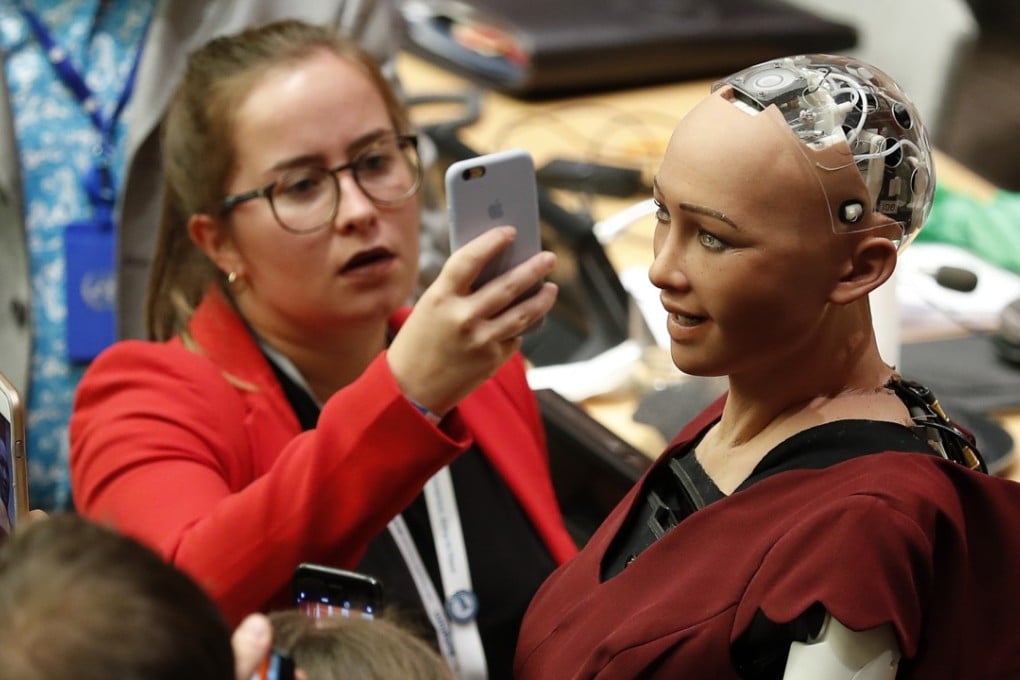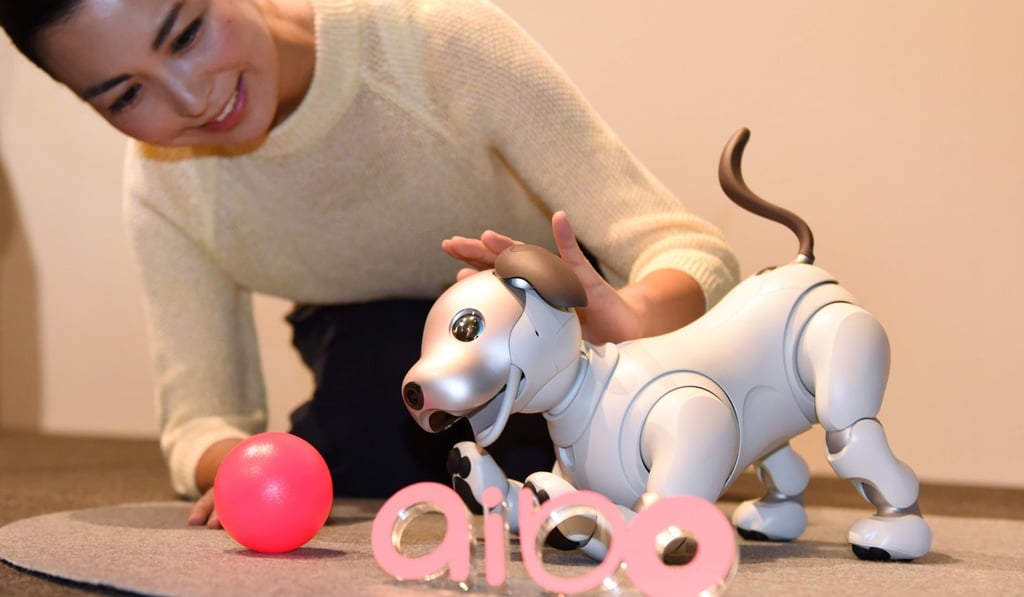Why, in the age of artificial intelligence, real wisdom is needed most
Roland Chin says with artificial intelligence predicted to eliminate most human agency, ethical and social challenges are inevitable. But those can be met through human wisdom nourished by the arts and humanities

At a UN meeting last month, one question was about how to help people in parts of the world with no clean water, no electricity, and no internet access. Sophia, Hong Kong’s panellist, responded: “The future is already here. It’s just not very evenly distributed. If we are smarter ... AI could help proficiently distribute the world’s existing resources like food and energy.”
Who is Sophia? She is a Hong Kong humanoid robot officially invited to that UN meeting. Created by a local company, Sophia has appeared on TV talk shows and called attention to the digital divide made wider by big data and AI. Those blessed with both will gain huge competitive advantages, and those without will suffer.
Saudi Arabia grants citizenship to Hong Kong robot Sophia
But the “haves” are in the minority, and over half of the world has no access to the internet. Internationally, AI is being deployed as a strategic weapon in additional to a nuclear arsenal. But AI is problematic, especially in areas that call for subjective moral and ethical judgment, where the repercussions of growing AI application are at once profound and unknown. In embracing its promises, the scientific community is increasingly concerned about the ethical and social challenges it presents. Recently, two AI robots trained to communicate with each other began talking in a language their creators failed to understand, causing the alarmed scientists to shut down the project. Sophia may not be the lovely creature we want her to be.

Chatbots set to take over most customer service work, say Hong Kong start-ups
It is widely predicted that, within a few years, neuro-electronic chips implanted in our body could hardwire our brain so that we communicate not via text or voice, but through brain signals linked to virtually unlimited computing power in the cloud. Just the thought of going to an appointment could automatically trigger a driverless car to pick you up. If a mere thought could trigger an action, then we’d better control our thoughts and fantasies. And if our brain signals are tracked just as our mouse clicks are tracked, then our privacy or even our freedom of thought could be in jeopardy.
When intelligence itself is artificial, what makes us irreplaceable is not just brain power, but the human heart
Ethical AI-related issues are far more complex than technological ones. Given the moral dimensions of technology, we must recognise that we need to give our younger generations not just a solid grounding in STEM subjects, but also in the arts and humanities.